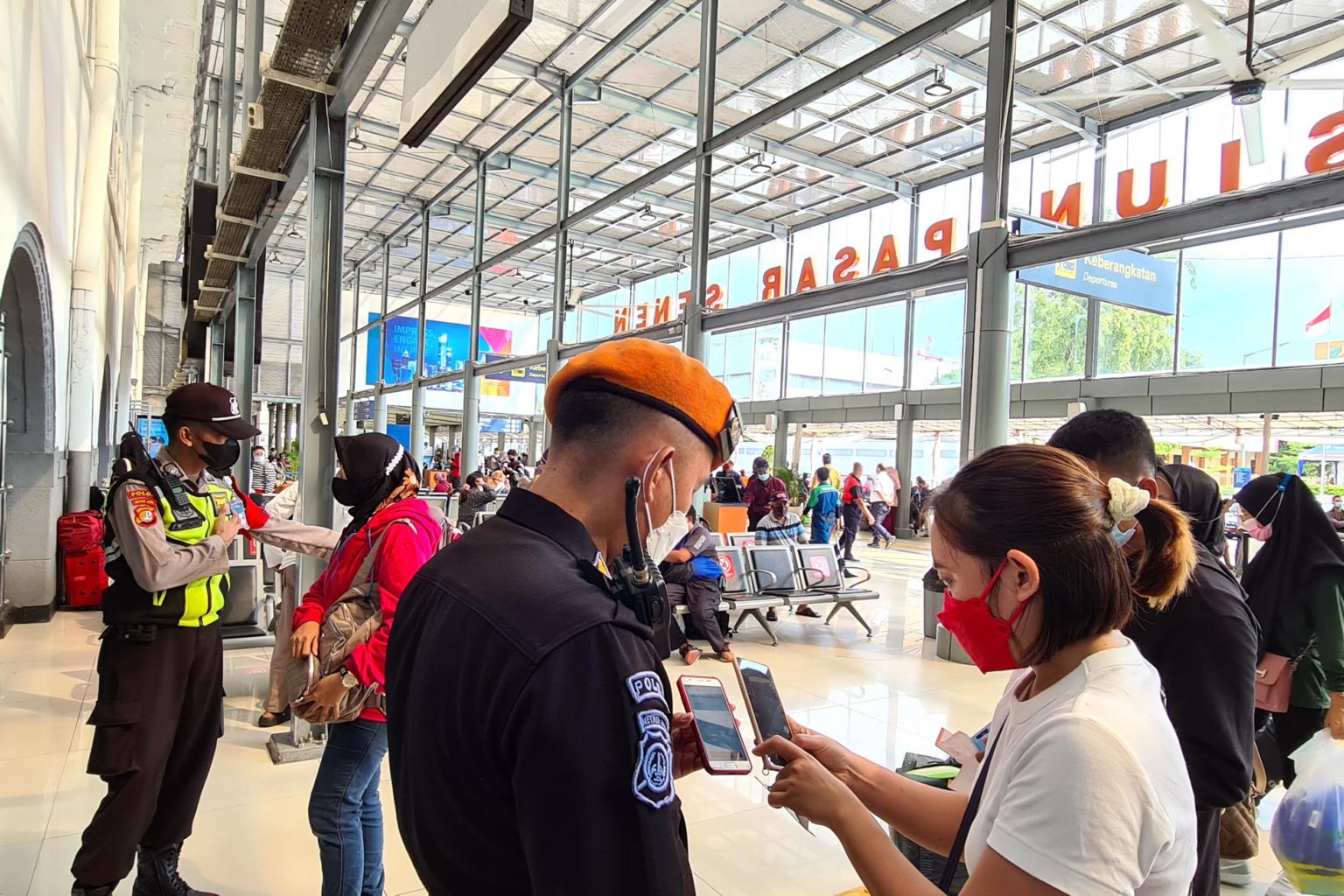Indonesia begins random Covid-19 tests for travellers returning home after Aidilfitri
Sign up now: Get insights on Asia's fast-moving developments

A commuter getting her ticket checked at Jakarta’s Pasar Senen train station.
ST PHOTO: LINDA YULISMAN
JAKARTA - Indonesia on Saturday (May 15) implemented random Covid-19 tests and mandatory checks on travellers returning from their hometowns following Hari Raya Aidilfitri, in a bid to stave off a surge in Covid-19 cases.
The random tests will be carried out in 21 locations on travellers departing from provinces across Java island to Jakarta, said Mr Airlangga Hartarto, head of the Covid-19 mitigation and national economic recovery committee.
It is also mandatory for all travellers from Sumatra island to the capital via Bakauheni port in Lampung to produce Covid-19 test results that show they are free of the virus.
Mr Airlangga said on a talk show: "It is expected that these measures can monitor the movements of people, to avert a spike in cases in the capital and other regions."
Previous random testing prior to the Aidilfitri period found that 4,123 out of 6,742 travellers had tested positive for the virus.
From early to mid-May, Sumatra's contribution of positive cases to the national tally rose to 27.22 per cent, while its fatality rate also surged to 17.18 per cent.
In contrast, Java's share towards the overall figure declined to 11.06 per cent, while its fatality rate also decreased to 16.07 per cent. Java is Indonesia's most densely-populated island.
Mr Airlangga, who is also Coordinating Minister for Economic Affairs, said that although the figures were "relatively manageable", the rise in cases, fatality rates and bed occupancy rates, should be monitored.
Indonesia is home to 270 million people, 90 per cent of whom are Muslim. At the end of Ramadan each year, millions living in Jakarta and other parts of the country make their way home by air, sea and land in a massive exodus known as mudik to celebrate Aidilfitri.
Indonesia banned the mudik for the second year from May 6 to 17 to curb the transmission of Covid-19, which has killed 47,967 and infected 1.74 million as of Saturday.
Mr Airlangga claimed that a set of measures taken this year to curb the massive exodus, particularly the blockage of major intercity streets, had been "more effective" compared with last year.
As at Hari Raya on Thursday (May 13), tens of thousands of vehicles with their occupants on their way home, including more than 64,000 from Jakarta, had been turned back.
The 381 checkpoints were manned by more than 155,000 police, military, public order and transport ministry personnel across the three major Indonesian islands of Sumatra, Java and Bali.
Despite this, some people managed to sneak through.
Speaking alongside Mr Airlangga on the same talk show, Transportation Minister Budi Karya Sumadi said only around 1.5 million people performed the homebound journeys ahead of Aidilfitri, much lower than the 18 million projected based on a Transportation Ministry survey earlier.
He added the number of travellers on air, sea and land, as monitored in departure points like Soekarno-Hatta International Airport, also dropped sharply compared with last year.
Mr Budi also projected that the return exodus might peak between May 16 and 20.
"We advise the people not to travel on those dates," he said.


